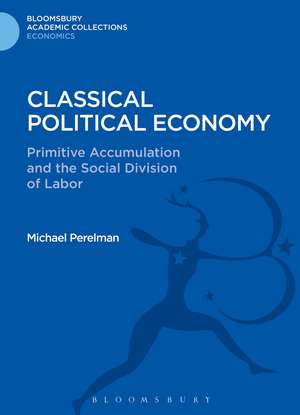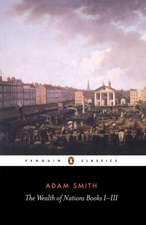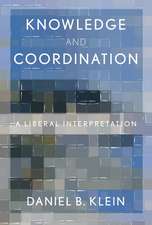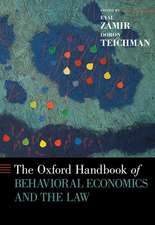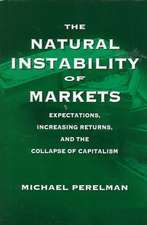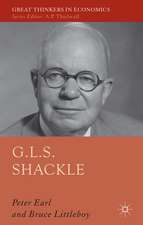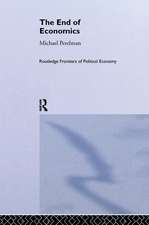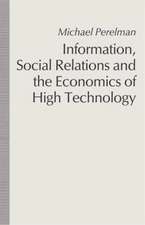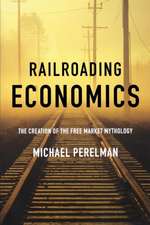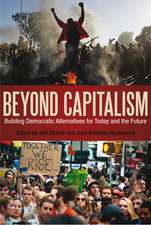Classical Political Economy: Primitive Accumulation and the Social Division of Labor: Bloomsbury Academic Collections: Economics
Autor Michael Perelmanen Limba Engleză Hardback – 6 noi 2013
Din seria Bloomsbury Academic Collections: Economics
- 22%
 Preț: 833.06 lei
Preț: 833.06 lei - 22%
 Preț: 831.68 lei
Preț: 831.68 lei - 22%
 Preț: 832.41 lei
Preț: 832.41 lei - 22%
 Preț: 832.80 lei
Preț: 832.80 lei - 22%
 Preț: 833.06 lei
Preț: 833.06 lei - 22%
 Preț: 830.87 lei
Preț: 830.87 lei - 22%
 Preț: 830.94 lei
Preț: 830.94 lei - 22%
 Preț: 830.53 lei
Preț: 830.53 lei - 22%
 Preț: 833.23 lei
Preț: 833.23 lei - 22%
 Preț: 832.58 lei
Preț: 832.58 lei - 22%
 Preț: 833.64 lei
Preț: 833.64 lei - 22%
 Preț: 831.36 lei
Preț: 831.36 lei - 22%
 Preț: 833.15 lei
Preț: 833.15 lei - 22%
 Preț: 832.58 lei
Preț: 832.58 lei - 22%
 Preț: 833.54 lei
Preț: 833.54 lei - 22%
 Preț: 830.46 lei
Preț: 830.46 lei - 22%
 Preț: 831.90 lei
Preț: 831.90 lei - 22%
 Preț: 832.65 lei
Preț: 832.65 lei - 22%
 Preț: 834.53 lei
Preț: 834.53 lei - 22%
 Preț: 832.00 lei
Preț: 832.00 lei - 22%
 Preț: 831.18 lei
Preț: 831.18 lei - 22%
 Preț: 831.68 lei
Preț: 831.68 lei - 22%
 Preț: 828.66 lei
Preț: 828.66 lei - 22%
 Preț: 830.29 lei
Preț: 830.29 lei - 22%
 Preț: 831.59 lei
Preț: 831.59 lei
Preț: 833.23 lei
Preț vechi: 1066.38 lei
-22% Nou
Puncte Express: 1250
Preț estimativ în valută:
159.48€ • 165.87$ • 133.64£
159.48€ • 165.87$ • 133.64£
Carte tipărită la comandă
Livrare economică 13-27 martie
Preluare comenzi: 021 569.72.76
Specificații
ISBN-13: 9781472514417
ISBN-10: 1472514416
Pagini: 272
Dimensiuni: 156 x 234 x 18 mm
Greutate: 0.58 kg
Editura: Bloomsbury Publishing
Colecția Bloomsbury Academic
Seria Bloomsbury Academic Collections: Economics
Locul publicării:London, United Kingdom
ISBN-10: 1472514416
Pagini: 272
Dimensiuni: 156 x 234 x 18 mm
Greutate: 0.58 kg
Editura: Bloomsbury Publishing
Colecția Bloomsbury Academic
Seria Bloomsbury Academic Collections: Economics
Locul publicării:London, United Kingdom
Notă biografică
Michael Perelman is Professor of Economics at California State University, Chico, USA.
Cuprins
Preface Introduction: Dark Designs1. Primitive Accumulation 2. A Great Beginning 3. Sir James Steuart's Secret History of Primitive Accumulation4. The Classics as Cossacks: Classical Political Economy Versus the Working Class 5. The Revisionist History of Professor Adam Smith 6. Benjamin Franklin and the Smithian Ideology of Slavery and Wage Labor7. The Counterattack8. Notes on Lenin and the Forging of Revolutionary SmithianismEpilogue References Index
